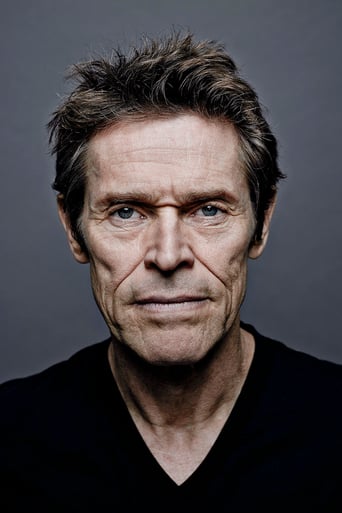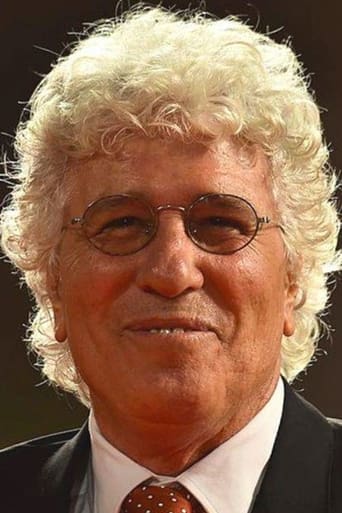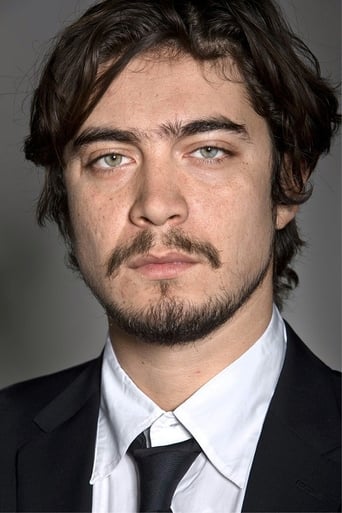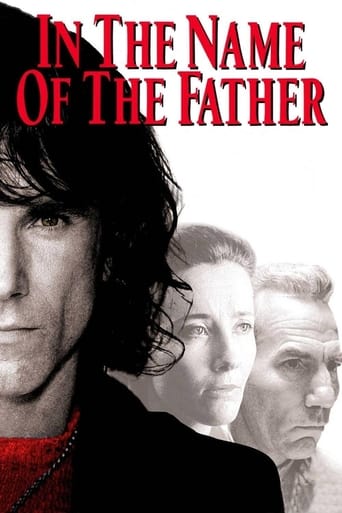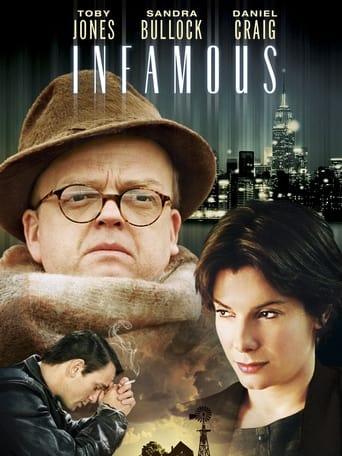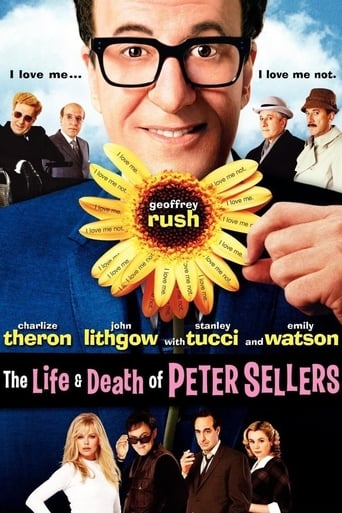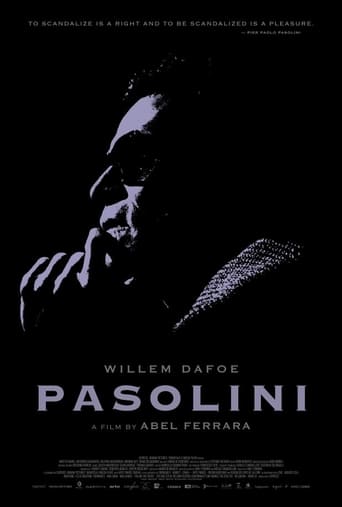
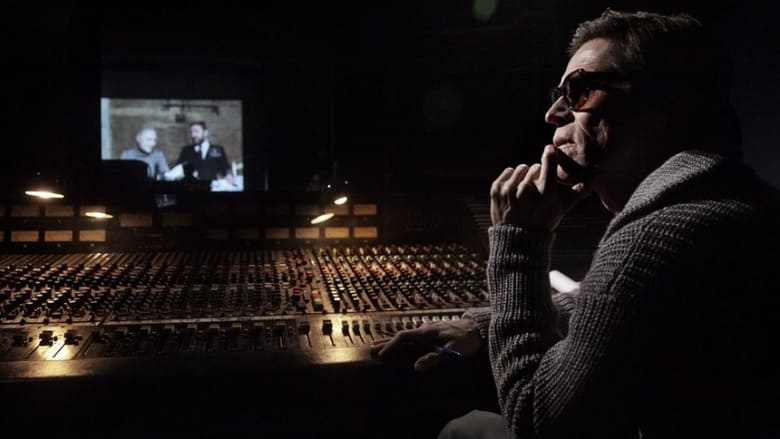
Pasolini (2014)
We are with Pasolini during the last hours of his life, as he talks with his beloved family and friends, writes, gives a brutally honest interview, shares a meal with Ninetto Davoli, and cruises for the roughest rough trade in his gun-metal gray Alfa Romeo. Over the course of the action, Pasolini’s life and his art are constantly refracted and intermingled to the point where they become one.
Watch Trailer
Cast
Similar titles
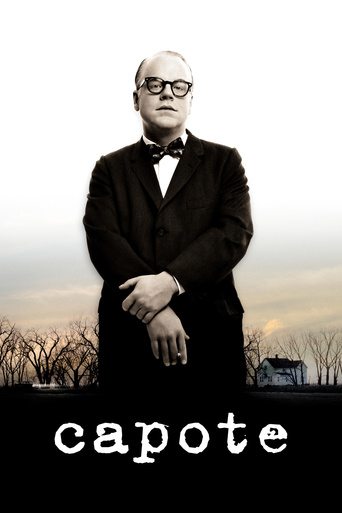

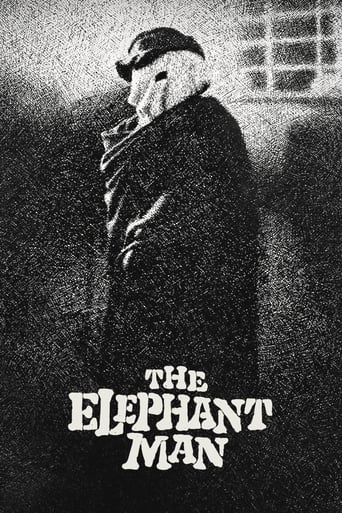
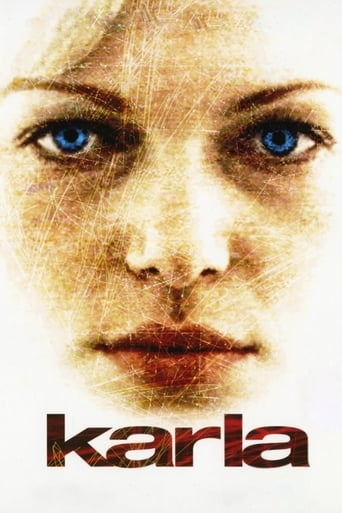
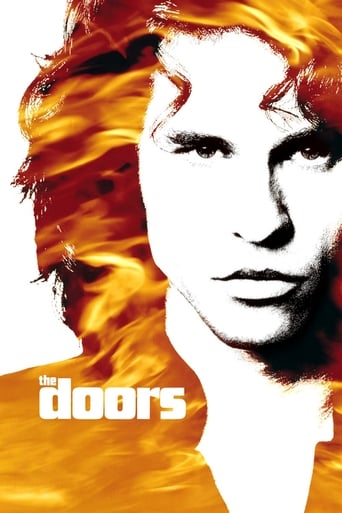
Reviews
Excellent but underrated film
This is a coming of age storyline that you've seen in one form or another for decades. It takes a truly unique voice to make yet another one worth watching.
A terrific literary drama and character piece that shows how the process of creating art can be seen differently by those doing it and those looking at it from the outside.
The movie really just wants to entertain people.
I remember the reporting on the sordid killing of poet and director, Pier Paolo Pasolini but was stunned to learn it took place as long ago as 1975, just after the completion of Salo. The last day or so of Pasolini's life is told here in a fittingly realistic and dark way but with clips from that last (very difficult) film and newly shot sequences from the director's script for a newly proposed enterprise, once more mixing the magical the religious and downright dirty. Ferrara is, of course, as uncompromising man as his subject and this believable portrait is simply that rather than some flattering or ego boosting enterprise. Willem Dafoe's performance is quite amazing and the look he achieves quite uncanny, Having an Italian wife who adored Pasolini seems to have helped him with this but it is a truly astonishing performance within a very good film. Neither Ferrara nor Pasolini have produced work that is the easiest to enjoy but nor can either be ignored.
Abel Ferrara's long-gestated biopic of Pier Paolo Pasolini has its congenital defect, by cast Willem Dafoe (albeit his striking physical resemblance) as the maestro, hence, the prominent anglophone dialog is rightly incongruous with its milieu and becomes more problematic because the rest Italian cast must follow suit, even for the venerable actress Adriana Asti, who plays Pasolini's senior mother, during a family and friend home-gathering, has to awkwardly keep the conversation going in her heavily accented English, that is a misstep to cut right through a naturally intimate occasion where could have spoken volumes of the internal discord. This language hitch is too big to ignore also because it is erratic, Dafoe manages to converse small talks in Italian (although the credit on IMBb listing that the voice is dubbed), but when he needs to express Pasolini's ideology, he switches to English, as he confesses during the interview with journalist Furio Colombo (Siciliano), paraphrasing here "it is better for me to write than speak about my thoughts", so Ferrara's indecision to stick to one solution chips away the film's potency. The film begins just days before Pasolini's shocking demise, but Ferrara judiciously doesn't tap into the juicier conspiracy theories spawned from it henceforth, and Dafoe's performance is restrained most of the time, pensively buries his self-consciousness of the impending quietus, his Pasolini is benevolent, intelligent and impermeable. The film only fitfully weaves flashback into its slender narrative (an 84-minute length), the sexual experience in his youth and rambling, indeterminate thoughts, but one of the merits is that Ferrara pays his reverence to piece together Pasolini's unfinished film, envisioning an idiosyncratic "messiah-seeking" journey starring Pasolini's "great love of his life" Ninetto Davoli as Epifanio and Riccardo Scamarcio as Davoli himself answering their calling and witnessing an annual heterosexual copulation ceremony (in the name of procreation) between gays and lesbians (celebrated with pyrotechnics) en route until a cosmic ending commensurate with Pasolini's own fate. The film is chromatically enveloped with a blue-tinted pall of a grubby Rome in the 70s, and when the brutal crunch finally descends on the night of November 2nd, 1975, Ferrara chooses a more pedestrian cause for the attack but injects his condemnation with one glimpse-or-you-will-miss-it shot where the homophobic perpetrators run over a badly beaten Pasolini when hurrying off the place in his vehicle, it could be the final blow extinguishing his last breath, whether it is intentional or accidental, either way, Ferrara hits home with the happening's incomprehensible cruelty. Poignancy reaches its apex in Asti's heart-rending breakdown through Maria de Medeiros' Laura Betti, attendant with Callas' stentorian threnody. Ferrara's PASOLINI is a disciple's deferential and cerebral homage to a mentor, whom he has never met and whose myth has been perpetuating around us ever since the horrific tragedy.
Without spoilers to begin: Pasolini is undoubtedly a highly artistic account of the famed film maker and his inglorious death whilst pursuing young hustlers in Rome. William Dafoe was an inspired choice to portray the master and both his looks and style are highly convincing. The pace of the film is good and the screenplay wonderfully imaginative with a confusion of reality and the imaginings of Pasolini as he constructs his last but sadly unfinished work in 1975. Anyone with an interest in the foundations of true artistic film making and the interface twixt reality and fantasy should certainly give this attention - as well as those who simply remember Pasolini and his films. With spoilers now: Unfortunately the true circumstances of Pasolini's death are masked in obscurity and this film does little to help identify the possibilities surrounding it. Indeed it positively leads the viewer to believe that he was killed largely as a result of theft and anti gay aggression by a gang of street youths.But a number of crucial facts are omitted that would suggest he was assassinated on the orders of higher interests who simply paid the street youths to do the work. The youths arrived by their own transport and left with it. They had followed Pasolini from Rome and waited their chance to spring him in the act. Only 17 year old Pino Pelosi, the boy baited to attract Pasolini, left in his car. Returning to Rome from the beach he was checked by the police, arrested and later imprisoned for nearly 10 years as the sole assassin. Moreover the youths chanted anti communist insults at Pasolini which is again not depicted the film. This is relevant because a random group would not have realized Pasolini's political views - and certainly not from the expensive car he was driving. In 2005 Pelosi detailed the incident some 20 years after his release. He cites a set up and explains that Mafia pressure forced him to make a false confession and prevented him from talking in the intervening period. Two of the attackers disappeared shortly after the murder and we are left with a clear suspicion that Pasolini was murdered not by these youths but by others higher placed to distort the investigation process that led to the simplistic conclusion still portrayed in this film.
Abel Ferrara's Pasolini was a resounding Dud at Venice 2014. Because of Pasolini's notoriety as the Baddest Boy ever of Italian film history -- he made some of the most controversial Italian films of all time (for example, "The 210 Days of Sodom and Gomorrah") and was a strident homosexual who was murdered in an unsolved sex related incident that is still heatedly discussed -- coupled with the fact that director Abel Ferarra, is an Italian American admirer of Pasolini, himself noted for controversial independent films ("The Bad Lieutenant" among others), and with actor Willem Defoe looking like an ideal choice for the role -- "Pasolini"was easily the festival film with the highest audience and critical expectations. Extensive press and magazine interviews with striking photographic portraits of Mr. Ferarra helped create an atmosphere of collective bated breath such that no fan worthy of his film buff salt would have been caught dead missing this super highly touted picture. Well, to make a long story short, "Pasolini" turned out to be the biggest Dud and Disappointment of the entire week.One could cite endless reasons but here are the salient facts.While Defoe with his distinctively chiseled features looked like the perfect choice to play Pasolini, he was pathetic if not ridiculous in the role. Most other characters in the picture spoke Italian but Defoe, except for one scene in which he answered some questions in French, spoke English throughout, which in itself totally undermined the Pasolini character -- a man who was also an eloquent and outspoken Italian poet. On top of which Defoe was constrained by Ferrara to perform in an uncharacteristically restrained manner --all of which just blew it completely. Everything else about the film was a fiasco -- clumsy mise-en-scene with too many extreme closeups --plodding narrative, etc. Ferrara was on record as stating that he had no interest in trivial facts like who killed Paolini, or anything like that -- ("me ne frego di tutto quello") -- he was only interested in showing what a great loss to the world Pasolini's untimely death was. The film recounts only the last day in the life of the director and does end with the brutal murder -- in this version by a band of violent homophobes -- but is utterly empty of anything even slightly memorable. Bottom line -- the biggest dud and disappointment of the festival and no great loss to cinema history. Poor Pasolini is probably turning over in his grave.
